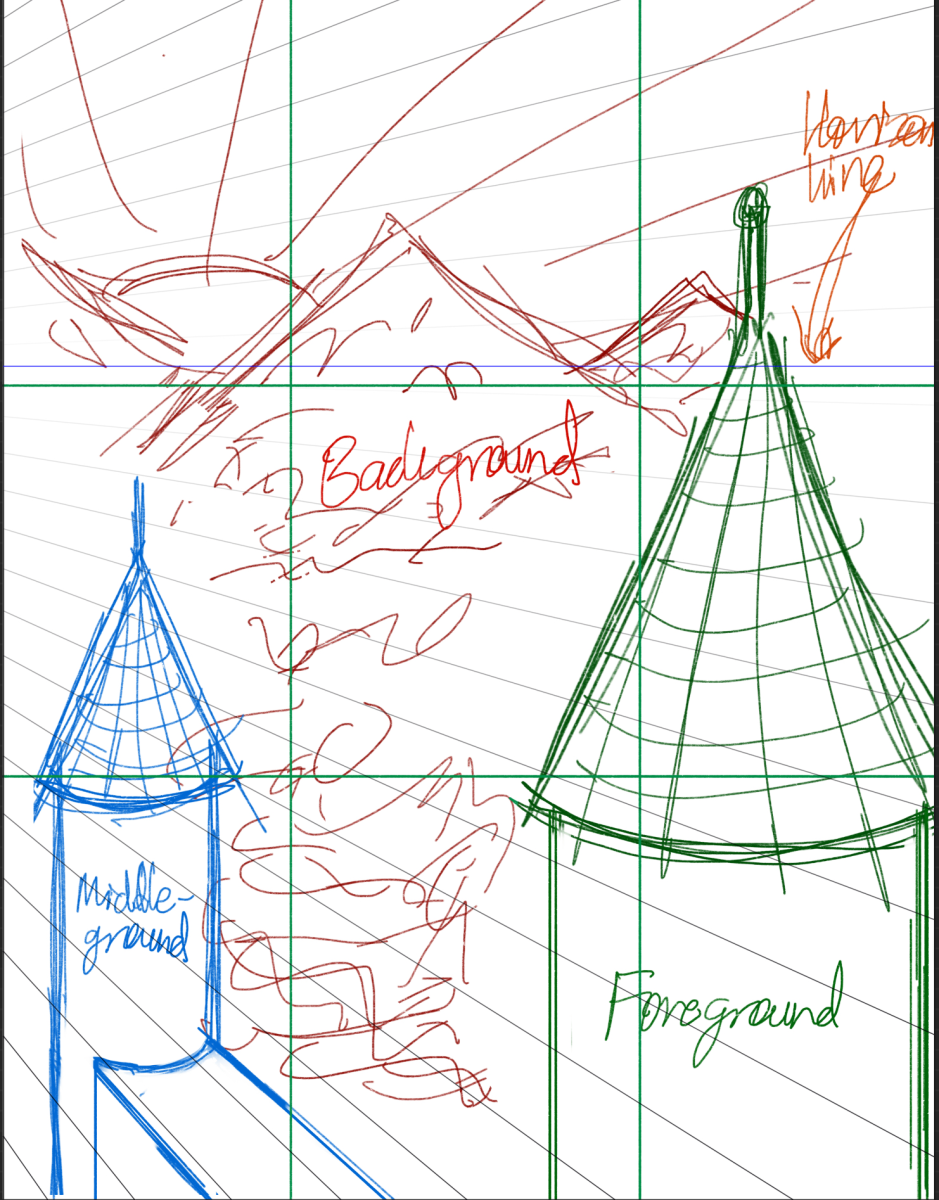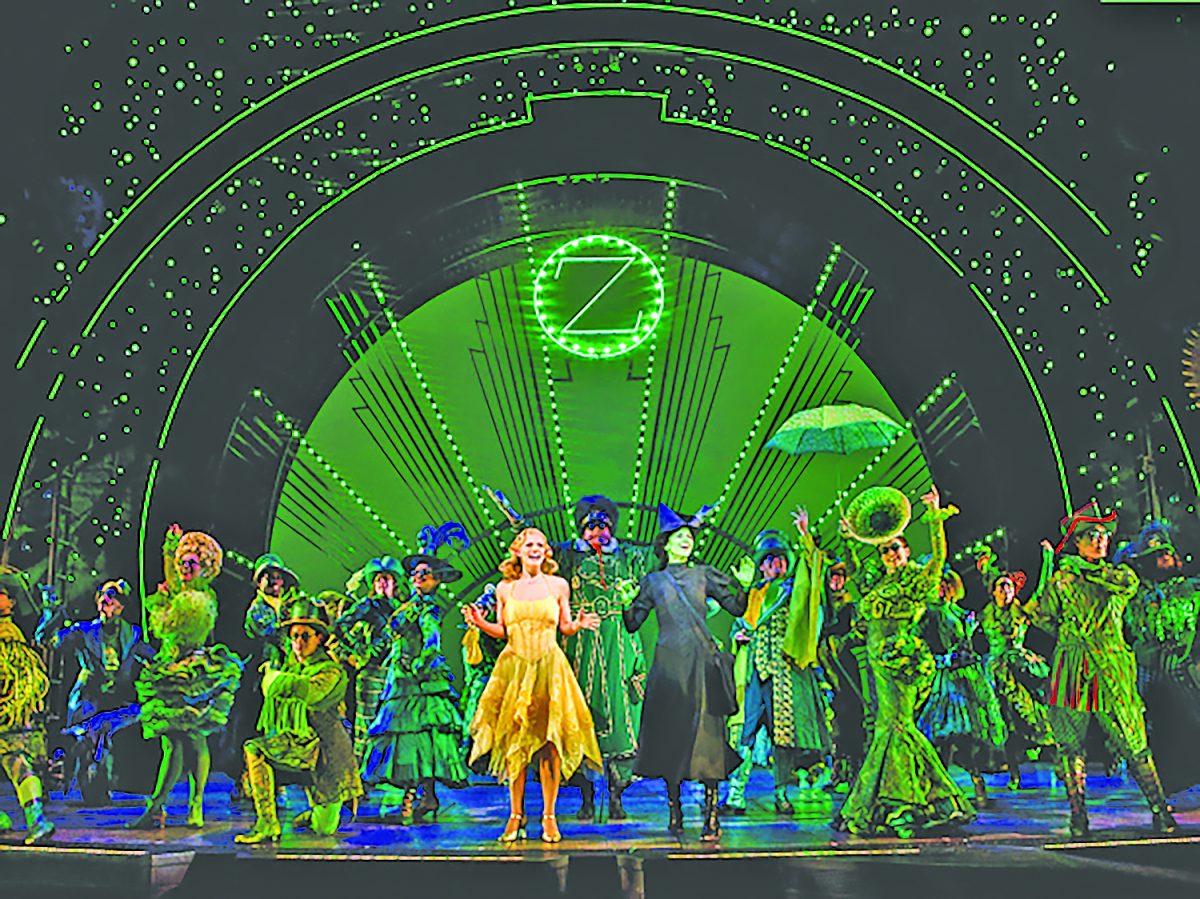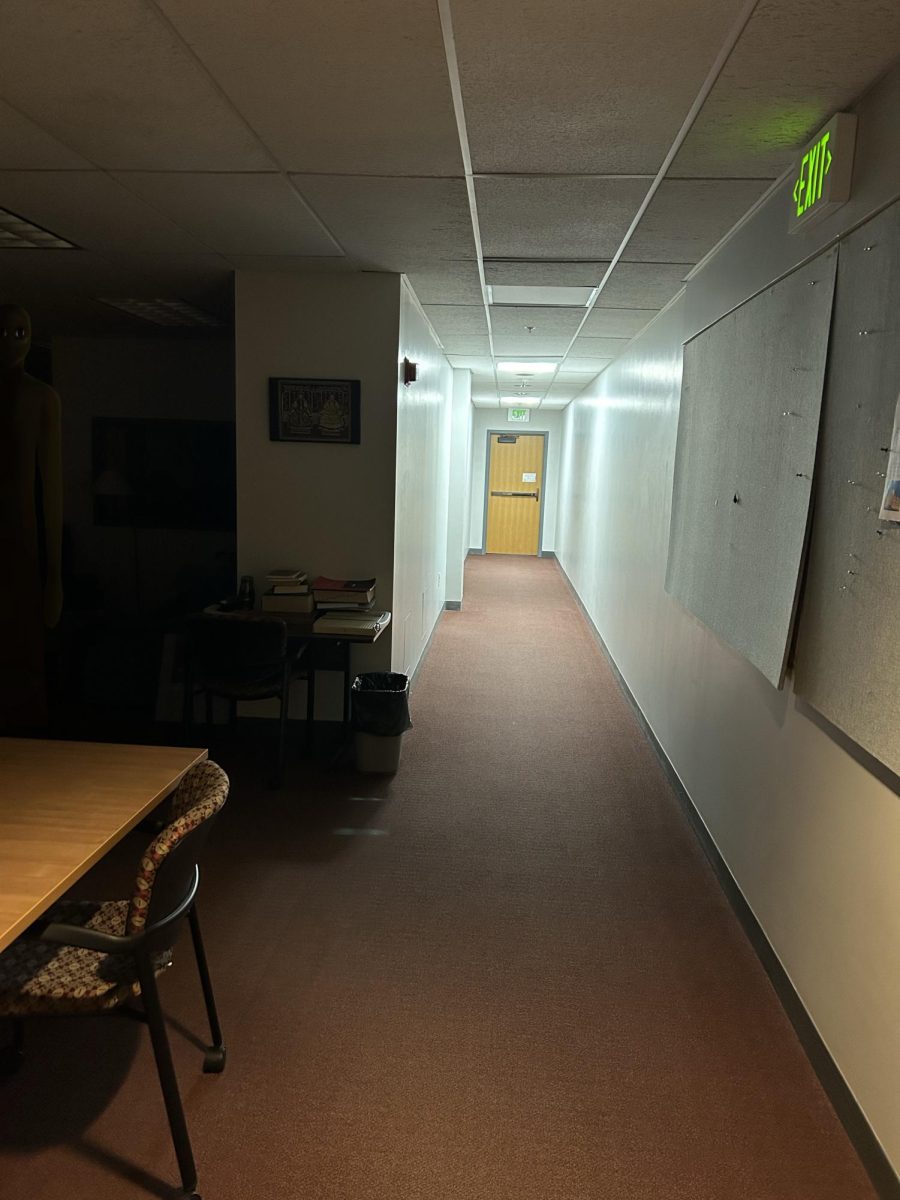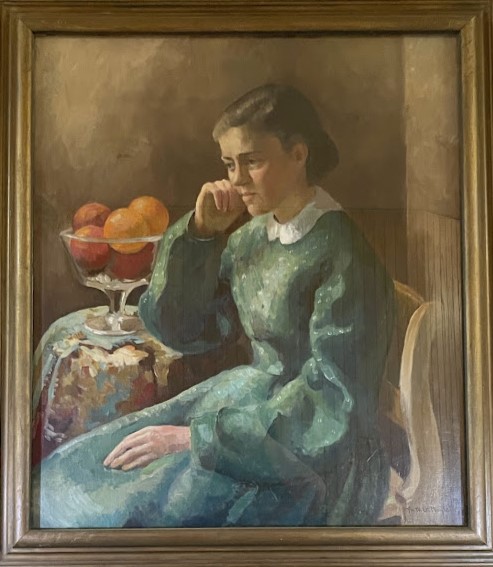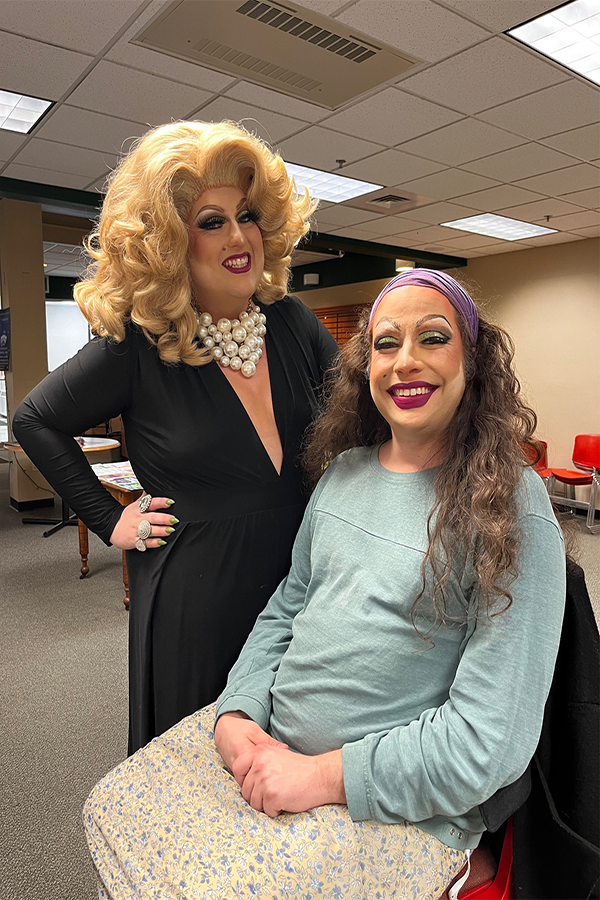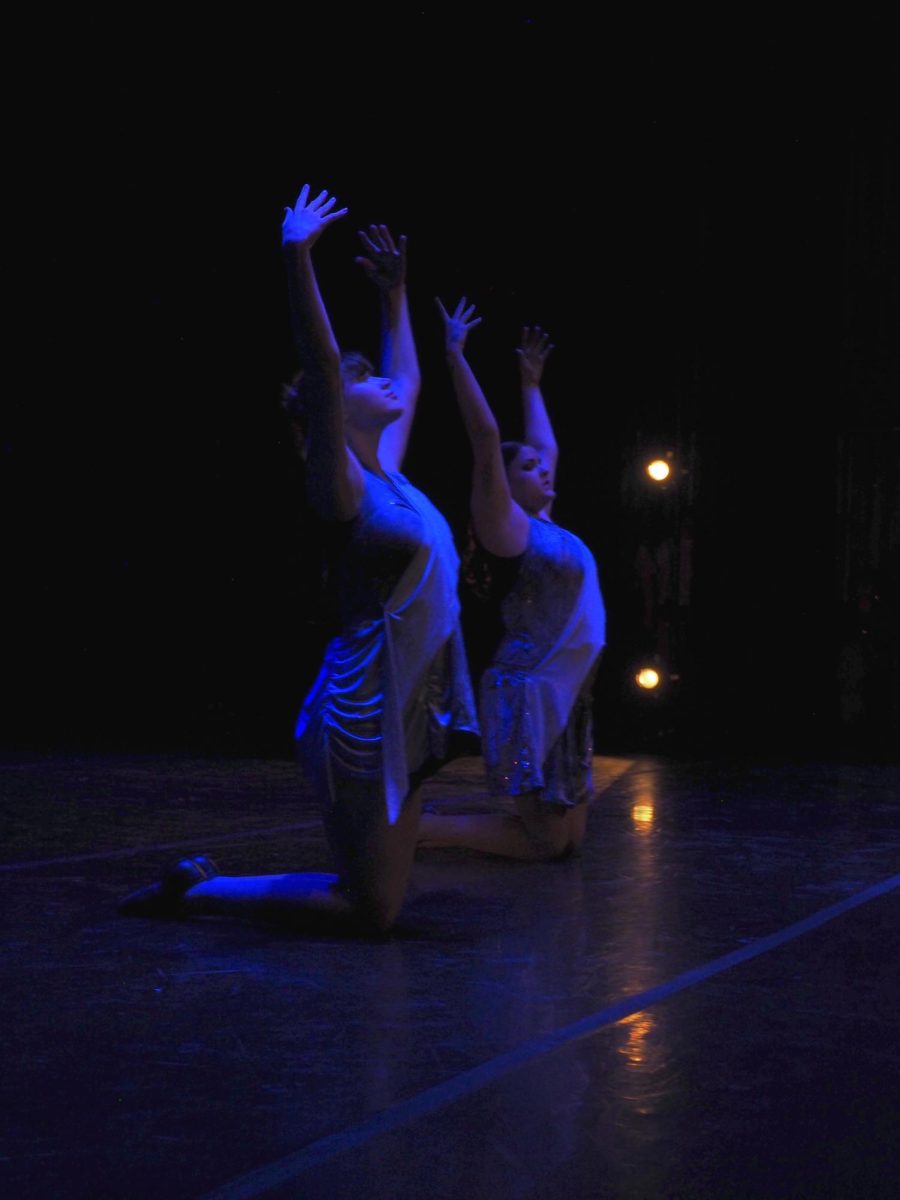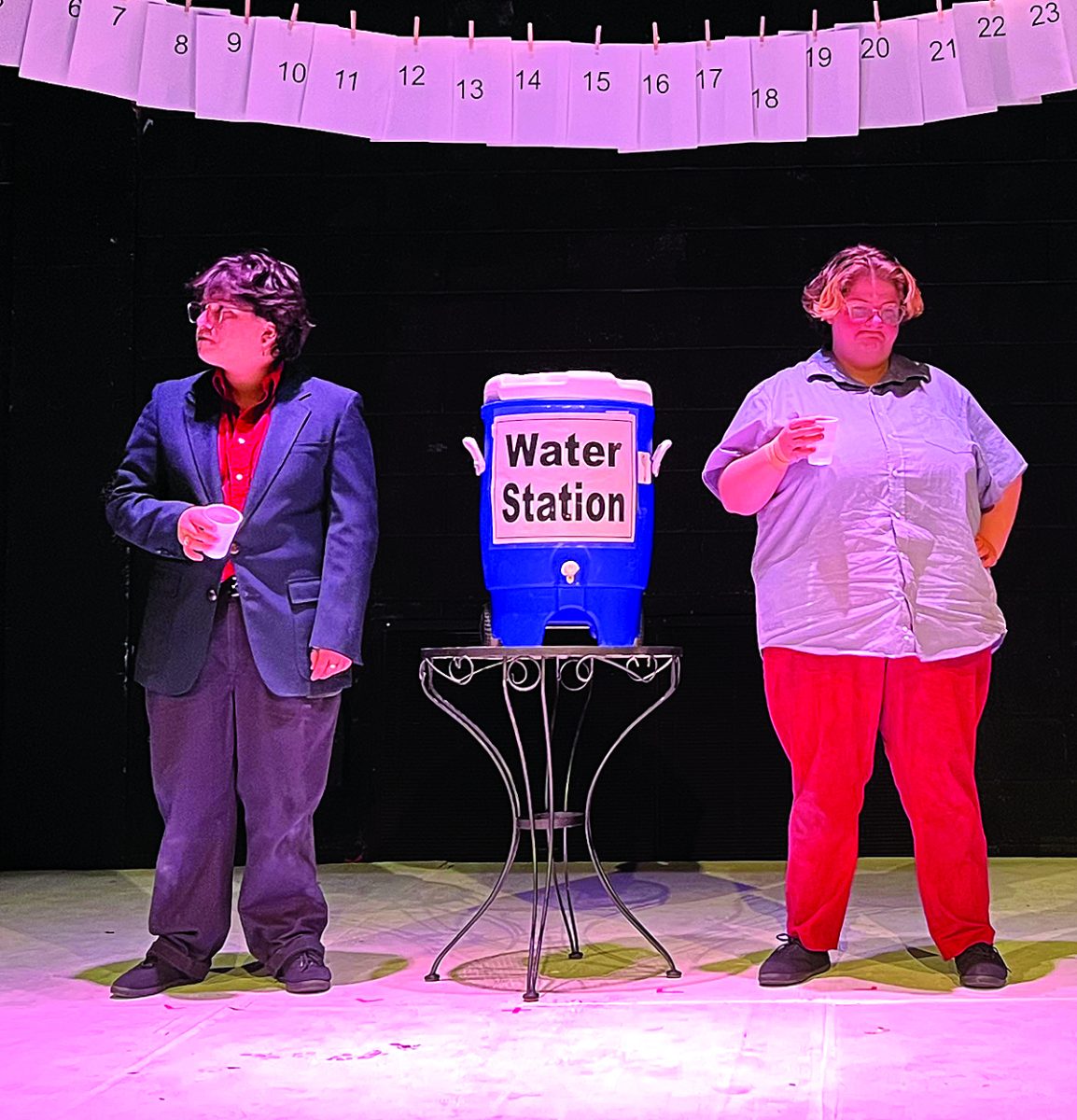“The Learned Ladies” by Moliere kept audiences laughing over the weekend of February 14. This 1672 play, directed by Christopher Colt, examines the dichotomy between the attractions of the mind and the attractions of the flesh. Moliere was the playwright for the French royal court and is considered to be one of the greatest masters of comedy in Western literature. With a spirited cast this play, written in verse, came to life in Dibden Center for the Arts.
The play opens with two sisters, Henriette (Danielle Godjikian) and Armande (Rachel Garnjost) discussing love and marriage. Walking around the beautifully done salon set, co-designed by Jacob Crosslin and Hannah Lynn, Godjikian and Garnjost elicited laughs from the audience with their banter, especially when the book “Human Sexuality” was pulled out. Godjikian’s acting has grown over the three years she has been at JSC. Garnjost’s first theater production on the Dibden stage was also a success.
Graduating senior Liz Thompson had the opportunity to keep the audience in hysterics as the narcissistic Belize.
In her tenth production at JSC, Thompson shined in a glorious, green costume designed by Liz Spier. Belize is the sister of Chrysale (Zane Watkins) and Ariste (Sam Kilbride). Watkins played the patriarchal head of the house, but in reality his wife Philaminte (Kate Kendall) ruled the roost making domestic life a challenge with her obsession with intellectual life. The dynamics between Chrysale and Philaminte, the married couple, were evident as the domineering matriarch wanted the maid, Martine (Heather Vize-Willey), fired because of her poor grammar and Chrysale had no choice but to bow to his wife’s strong opinions as she is no stranger to scolding and screaming to get her way.
Thomas Gunn, a freshman in his second role on JSC’s stage, carried the role of Clitandre, the object of Henriette’s affections and former beau of Armande. Although her father approves of her marrying this man, this doesn’t align with her mother’s plan for her to marry the insufferable Trissotin (Ethan McGovern). In Friday night’s show, McGovern had a codpiece/wig malfunction that he recovered from like a true pro. Not once breaking character, he adjusted his wig, and kept on like a 17th century Freddie Mercury. His rival, Vadius, was played by Henry George, a newcomer to the theater that we hope to see continue acting.
In his second time on JSC’s stage, freshman Dylan Ballou played the dual role of Lepine, Chrysale’s stooped butler, who fell over multiple times to the audience’s delight, and Julien, Vadius’ valet.
In her first play, Felicia Filiatreault played the notary commissioned to draw up the wedding contract for Henriette’s marriage with ease.
Spier outdid herself costuming this production. With glorious colors and period style, she embedded modern touches in each actor’s costume. Martine’s rainbow stockings and tiara were fabulous.
Crosslin and Lynn did a great job with the set. The one-room set included a black and white checkered floor in the salon, cornflower blue walls, French doors in the middle and bookshelves for the pedantic women in the family. Props Master Taylor Shaw was assisted by Ericka Salter, and everything ran smoothly.
Sound designer Charles Nelson Fredrick used interesting sound bits to transition through scenes and add some modern flair. Bonnie Cleverley did a great job in light designing her first play. Although much of the play used bright lighting, Cleverley dimmed the lights for Armande’s monologues in the front of the stage to set the somber tone.
As a certified Bobbi Brown makeup artist, Erin Keyes continued her tradition of providing the cast with beautiful makeup.
Stage Manager Jasmyn Carpentier was assisted by Angela Hunt and Stephanie Zello, contributing to a smooth-running show.
Michael Brokowski was the master electrician for this production.
“The Learned Ladies,” a witty, thought-provoking play which touches upon themes that remain current today, women’s position in society, their access to education, and the delicate balance of roles in a marriage. Though period productions sometimes fail to appeal to all audiences, this play, with some modern touches added, was able to draw in people that don’t typically enjoy 17th century comedy.



